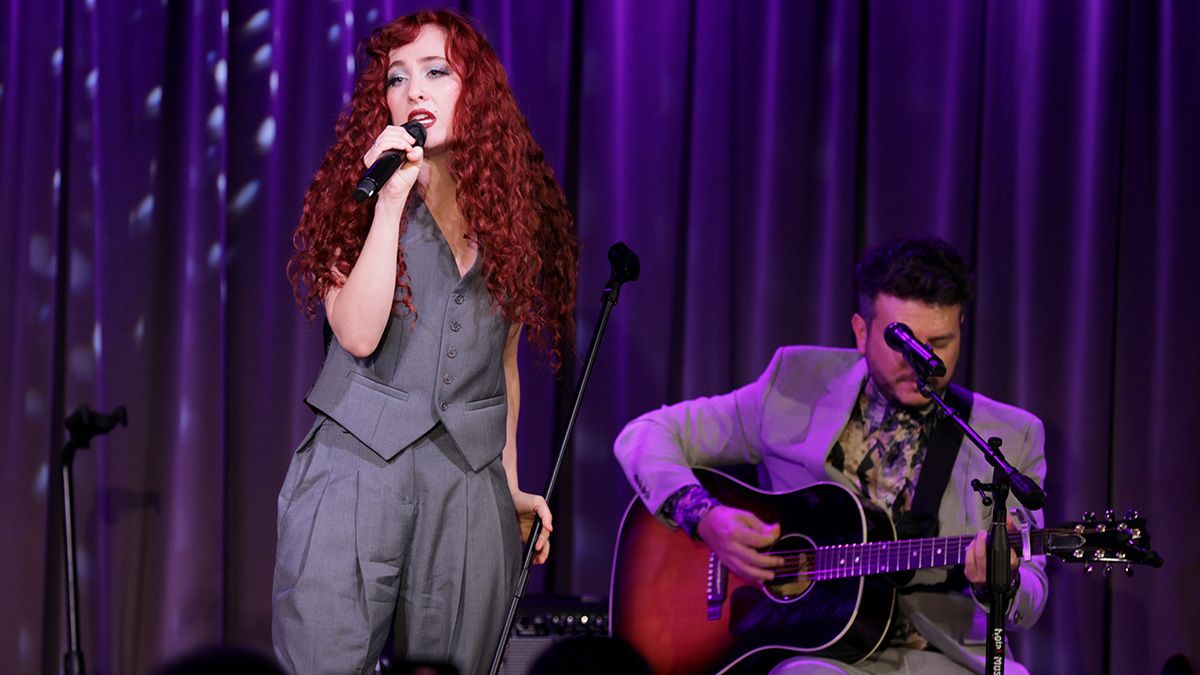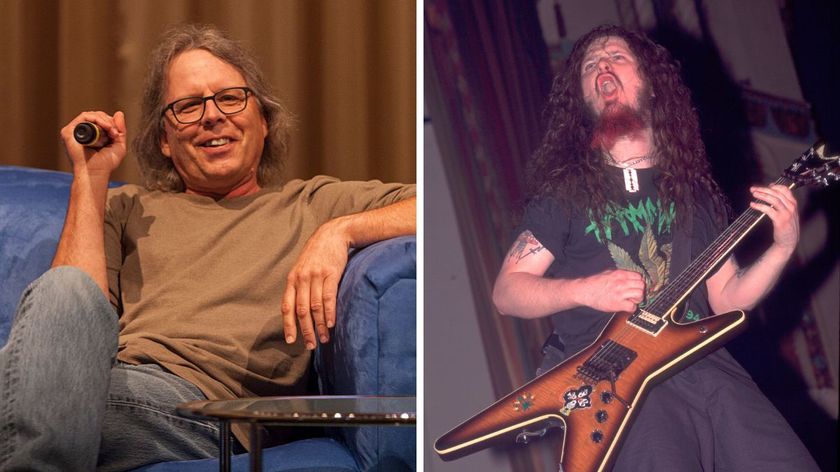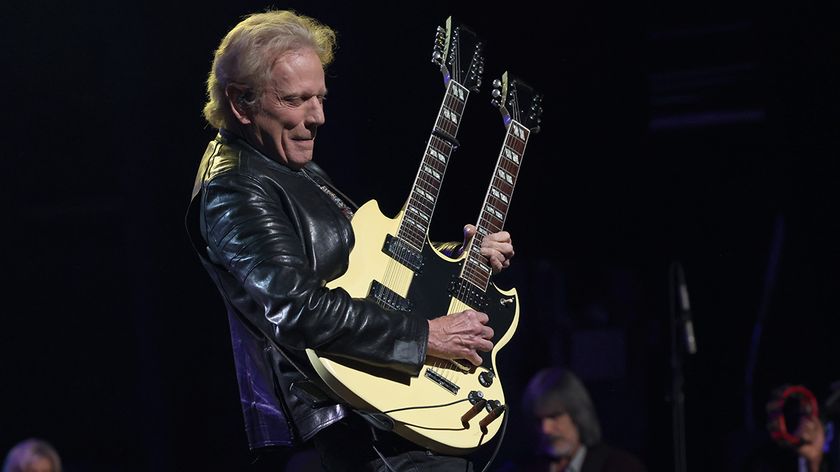“My brain is like, ‘Guitar solos are dated because Metallica’s solos are from the ’80s…’ She was like, ‘No, I want a guitar solo’”: Olivia Rodrigo and Chappell Roan producer Dan Nigro explains why today’s pop stars want guitar solos on their tracks
Nigro has graduated from the indie world to pop producer stardom – and brought his guitar knowledge with him

Grammy-nominated producer Dan Nigro, has played an integral role in the careers of two of pop's brightest stars to emerge over the past couple of years: Olivia Rodrigo and Chappell Roan – and their masterfully crafted albums, Sour (2021) and Guts (2023), and The Rise and Fall of a Midwest Princess (2023).
With Rodrigo heralding the new vanguard of pop-punk and Chappell Roan bringing the queer experience to the forefront with cleverly crafted, '80s-tinged pop, Nigro – who was formerly a guitarist in ’00s indie band As Tall As Lions – has established himself as a producer capturing the zeitgeist, and doesn't shy away from a guitar solo – even if it's counter to his own instincts.
“My brain is like, ‘Guitar solos are dated because I listen to Metallica and Metallica's guitar solos are from the ’80s’,” Nigro tells Rolling Stone’s Brian Hiatt.
“It's always great as a producer and a guy in his 40s to work with the younger artists and have the fresh perspective that's not dated to me.
“That's why I love working with Chappell and love working with Olivia, because their reference points are always current because of their age. And so I'm always learning.”
Solos appear across Nigro's productions – most notably the octave fuzz rager on Olivia Rodrigo's bad idea right? and the '80s-indebted lead on Roan's sleeper hit, Pink Pony Club.
“I was listening back to earlier versions of the song when it was just her and I riffing on ideas,” recalls Nigro of making Pink Pony Club. “I was like, ‘What was it before?’ Because I would work on the production, and then I'd send her a bounce and be like, ‘Here's where I'm at with the song.’
Get The Pick Newsletter
All the latest guitar news, interviews, lessons, reviews, deals and more, direct to your inbox!
“I remember when she heard the part after the bridge, she was like, ‘No, I want a guitar solo.’ So I was like, ‘Wait, what did I have before the guitars? I don't even remember what was before the guitars.’ Because even in my head, the guitar solo has always been there, which wasn't the case. It was like a synth solo.”
Nigro explains that even though the song does have guitars in it – “the chorus hits with big, dirty guitars” – Roan was the one who pointed out that it was begging for a full-blown solo.
“I remember I went in, worked on it, and sent her a version. She was like, ‘It needs to be more melodic.’ So me and Sam [Stewart, guitarist of the band Lo Moon, who also played on Roan's debut], workshopped what you hear now. I think it was a second pass that we made it super-melodic, and she loved it.”
Speaking of Chappell Roan collaborators, guitarist Devon Eisenbarger recently revealed she was out doing a show with Katy Perry in Italy when she got the call to join the Good Luck, Babe! hitmaker's band.
Janelle is a staff writer at GuitarWorld.com. After a long stint in classical music, Janelle discovered the joys of playing guitar in dingy venues at the age of 13 and has never looked back. Janelle has written extensively about the intersection of music and technology, and how this is shaping the future of the music industry. She also had the pleasure of interviewing Dream Wife, K.Flay, Yīn Yīn, and Black Honey, among others. When she's not writing, you'll find her creating layers of delicious audio lasagna with her art-rock/psych-punk band ĠENN.
![[Left] Acclaimed producer Terry Date reclines on a blue couch as he speaks at an industry convention; [right] The late Pantera guitarist Dimebag Darrell, holds a note and feels it. He is wearing a white Garth Brooks T-shirt and plays his blue lightning finish Dean ML electric guitar.](https://cdn.mos.cms.futurecdn.net/nCqZukJJJMwpDY4ZeZhtsL-840-80.jpg)
“Around Vulgar, he would get frustrated with me because I couldn’t keep up with what he was doing, guitar-wise – Dime was so far beyond me musically”: Pantera producer Terry Date on how he captured Dimebag Darrell’s lightning in a bottle in the studio

“He ran home and came back with a grocery sack full of old, rusty pedals he had lying around his mom’s house”: Terry Date recalls Dimebag Darrell’s unconventional approach to tone in the studio
Most Popular










